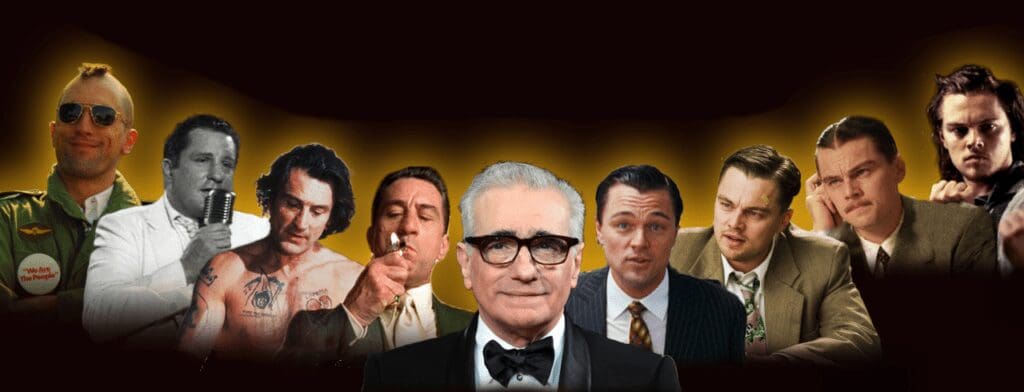
At 81 years old and fresh off the acclaimed epic “Killers of the Flower Moon,” Martin Scorsese is already lining up his next thought-provoking film: an exploration of Jesus’s life and teachings. Based on Shūsaku Endō’s novel “A Life of Jesus” (Endō also penned Scorsese’s 2016 religious drama “Silence”), this latest spiritual quest will bring Jesus’s message into a modern setting. However, Scorsese doesn’t want to be locked into a certain period because he wants the film to feel timeless.
“I tried finding with ‘Kundun’ and ‘The Last Temptation of Christ,’ even ‘Gangs of New York,’ to a certain extent, ways into redemption and the human condition and how we deal with the negative things inside us,” Scorsese says to the LA Times. “Are we decent and then learn to become indecent? Can we change? Will others accept that change? And it really is, I think, a fear of a society and culture that’s corrupted because of its lack of grounding in morality and spirituality. Not religion. Spirituality.”
Co-written with critic/filmmaker Kent Jones, who helped with ‘Silence’, Scorsese wants to spotlight Jesus Christ’s core principles without preaching. He hopes to uncover the deeper truths that still ring true today, creating a timeless tale about redemption and the human condition. This has been done before with the Italian avant-garde The Gospel Of Matthew, where Jesus is depicted as a rebel against the formal rule of high-class priests and government, famous for having the actor who played Jesus only use the recorded words of The Lord.

RELATED: New York Times Writer Drops Bombshell: Hollywood Believes That Superhero Movies Are Not Woke Enough
Few would accuse Scorsese of shying away from bold, controversial subjects. From mob family stories of greed and violence in “Goodfellas” to questioning the very foundations of faith in “The Last Temptation of Christ,” he fearlessly confronts humanity’s thorniest issues.
When “The Last Temptation of Christ” deviated from the gospel stories, particularly in the short scene where Jesus and Mary Magdalene consummate their marriage, a number of Christian organizations organized vocal protests and boycotts of the movie both before and after it was released. 600 protestors turned out to picket the corporate headquarters of MCA, the parent company of Universal Studios, in one instance, which a religious radio station in California coordinated. A protester posed as MCA Chairman Lew Wasserman and acted as though he was nailing nails through Jesus’ hands and into a wooden cross.
In order to destroy the film, evangelist Bill Bright offered to purchase the negative from Universal. Many theater chains were persuaded not to screen the movie as a result of the successful protests. Later, General Cinemas, one of those chains, expressed regret to Scorsese for doing so.
While some may cry blasphemy, Scorsese argues organized religion has failed in many ways; ”yet that needn’t invalidate all spiritual thought. Let’s get back. Let’s just think about it. You may reject it. But it might make a difference in how you live your life — even in rejecting it,” Scorsese brings to attention. “Don’t dismiss it offhand. That’s all I’m talking about. And I’m saying that as a person who’s going to be 81 in a couple of days. You know what I’m saying?”

Never one to back down from soul-searching cinema, Scorsese believes Jesus and his message still holds power, if presented in a fresh light. Free of dogma and open to interpretation, Scorsese’s latest quest could offer life-affirming new insights using the gospel of Jesus. “So for me, it’s finding my own way in a.. if you want to say the term ‘religious’ sense, but I hate to use that language, because it’s misinterpreted often,” Scorsese says. “But there’s basic fundamental beliefs that I have — or I’m trying to have — and I’m using these films to find it.”
Few directors can match Scorsese’s passion or pedigree. While the outspoken auteur courts controversy, fans eagerly await his boundary-pushing vision. The Jesus tale seems a fitting culmination to a career spent wrestling with profound questions of morality and faith. “It’s almost an impossible goal for human beings, that kind of forgiveness,” Scorsese continues. “But I really believe in it. If we nurture forgiveness, maybe the world could change, ultimately. I’m not saying next year. It could be a thousand years from now, if we’re still around.”
However his spiritual journey unfolds, Scorsese will surely bring his trademark style. Gritty yet poetic, confrontational yet thoughtful, only he could attempt such an audacious project. Audiences may disagree, but they’re unlikely to look away from watching a master filmmaker’s passion for unraveling mysteries of the soul on screen.
Are you interested in seeing the “Jesus” story by Martin Scorsese? Is it blasphemous or in line with the legendary movie maker’s catalog? Leave a comment below!
NEXT: Rosario Dawson Indicates Star Wars: Ahsoka May Not Be Back For A Second Season

Leave a Reply